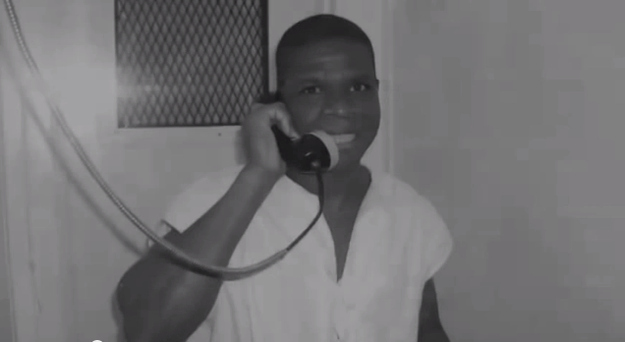
Duane Buck is no boy scout. He was convicted in 1997 of shooting three people in Texas, killing two. But during his sentencing hearing, an expert witness, Dr. Walter Quijano, was asked questions concerning Buck's likelihood of committing violence again.

Prosecutors urged jurors to heed his testimony in making their decision and he was sentenced to death. In Texas, being a "continuing threat to society," is a necessary finding for the death penalty.
That wasn't the only time Quijano has issued race-based testimony. He did so in six other cases, prompting then attorney general, John Cornyn (now Texas Senator), to issue a statement saying, "it is inappropriate to allow race to be considered as a factor in our criminal justice system."
All six cases, featuring black and Hispanic men, received new sentencing hearings -- but Buck did not.
In 2011, a stay of Buck's execution was granted by the U.S. Supreme Court to decide if they would hear the case. The four votes necessary were not reached but Justice Sonia Sotomayor issued a dissenting opinion along with Justice Elena Kagan saying his sentence requires review because "our criminal justice system should not tolerate" a death sentence "marred by racial overtones."
On November 20, the Texas court of criminal appeals denied Buck's appeal for a new sentencing hearing by a vote of 6-3.
Now the Harris County district attorney's office is again free to set a date for Buck to be executed.
"There is no contesting that he committed the crime," Buck's attorney, Kate Black told BuzzFeed. "At issue here is the fairness of the process and ensuring that if we're going to give someone the ultimate punishment, we make sure that we're doing so in a color blind manner."
A Maryland University professor conducted a study commissioned by the NAACP legal defense fund, which found that at the time of Buck's sentencing, his race made it more likely that he would face death.
The Harris County District Attorney's Office was over three times more likely to seek the death penalty against African American defendants like himself, than against similarly-situated white defendants. The research also shows that Harris County juries were more than twice as likely to impose death sentences on African American defendants in cases like Mr. Buck's, than on similarly situated white defendants.
One of the issues that complicates the situation for Buck, is that the defense, not the prosecution, brought Quijano to testify on the case.
Justice Samuel Alito, Justice Antonin Scalia and Justice Stephen Breyer, said the expert "was a defense witness, and it was [Buck's] attorney, not the prosecutor, who first elicited Dr. Quijano's view regarding the correlation between race and future dangerousness." For this reason, Buck's death sentence could not be thrown out based on evidence that his own lawyer put forward.
Black said it doesn't matter that the defense called Dr. Quijano.
"In 2000, then Texas Attorney General John Cornyn admitted that the United States Constitution was violated by the introduction of Dr. Walter Quijano's expert testimony linking race to future dangerousness in seven capital cases: in three of those cases, the expert was called as a defense witness; in the others, the expert was called as a prosecution witness," she said.
"The key here is that in [the three cases] the offensive race-based testimony was elicited and relied upon by the prosecutor. It is thus the State's actions that violated these individual's rights to equal protection."

Among Buck's supporters are former Governor and Texas Attorney General Mark White and one of Mr. Buck's trial prosecutors, former Harris County Assistant District Attorney Linda Geffin, who have joined elected officials, civil rights and faith leaders in asking the Harris County District Attorney's Office to agree to a new sentencing hearing for Buck.
Jeff McShan, spokesman for the Harris County District Attorney's office, told BuzzFeed the district attorney is taking a look at the issue and will comment sometime in the next week.
In a video by the NAACP legal defense fund, Buck is asked about the testimony that led to his capital sentence.
"Out of all the things, that stood out," he said in a prison phone interview. "Because it's like, he's basically saying because you're black you deserve to die."

